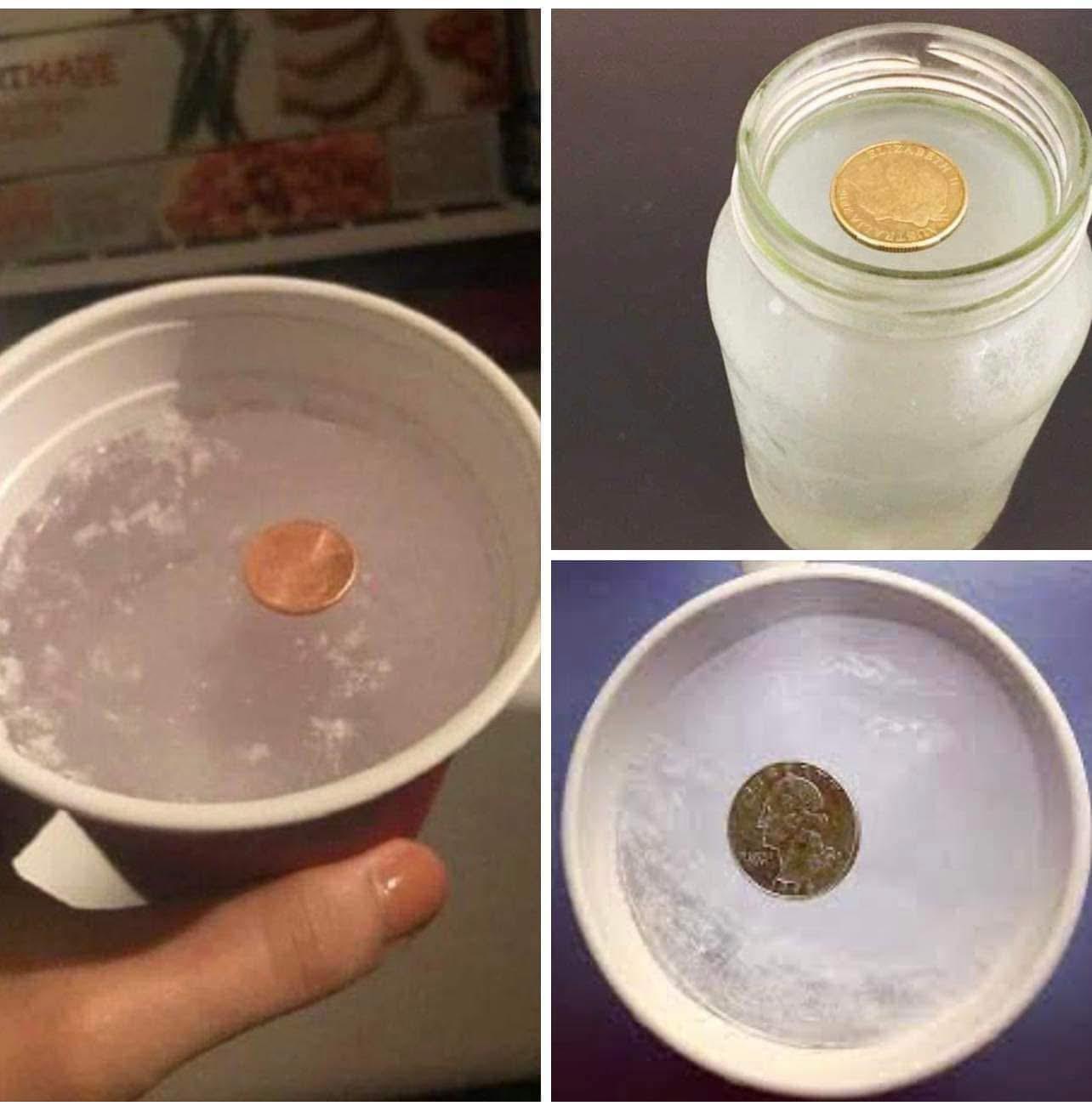The Quarter-in-the-Freezer Trick: A Simple Yet Brilliant Way to Protect Your Food
In the aftermath of a hurricane warning, Emily found herself hurriedly packing her bags to evacuate her coastal home. As she moved through the house, preparing to leave, she paused in front of her freezer. A thought nagged at her: What if the power goes out while I’m gone? How will I know if the food in the freezer is still safe to eat?
Emily’s grandmother had taught her many life hacks over the years, but one, in particular, stood out now—a trick involving a cup of water and a coin that could save her from potential food poisoning or unnecessary waste. It seemed almost too simple to work, but her grandmother swore by it. With no time to lose, Emily decided to put it to the test.

The Trick in Action
Emily grabbed a small cup, filled it with tap water, and placed it in the freezer. Once the water was frozen solid, she carefully laid a quarter on top of the ice. Satisfied, she closed the freezer door and left her home, praying for the best.
What makes this method so effective is its simplicity. The placement of the quarter serves as a clear indicator of whether the freezer has maintained its temperature while you’re away:
- If the quarter remains on top of the ice, the freezer stayed cold, and the food inside is likely safe to consume.
- If the quarter has sunk to the bottom, it means the ice melted completely and refroze, indicating a significant power outage during which the food thawed. In this case, the food should be discarded.
- If the quarter is somewhere in the middle, it suggests a partial thaw. While some food may still be safe, caution should be exercised, especially with perishable items.
Why It Matters
Power outages, especially during storms or extended trips, can compromise the safety of your frozen food. When the freezer loses power, items inside begin to thaw. If the power returns before you’re back, the food might refreeze, masking the fact that it was exposed to unsafe temperatures. This can lead to potential health risks if you unknowingly consume spoiled food.
Emily’s grandmother always emphasized this hack as a way to protect both your health and your wallet. After all, throwing away food unnecessarily is costly, but eating food that’s gone bad can be dangerous.
Emily’s Return
When Emily returned home days later, she anxiously opened the freezer. To her relief, the quarter was still sitting on top of the ice. This simple sign reassured her that the freezer had maintained its temperature, and her food was safe.
She reflected on how such a small, clever trick had saved her from hours of worry and potentially hundreds of dollars in wasted groceries. Inspired, she decided to share the idea with her friends and neighbors, many of whom were also recovering from the storm.
A Lifelong Solution
Emily soon realized this hack wasn’t just useful during evacuations. Anytime she was away from home—whether on vacation, visiting family, or even during a potential power outage—this trick gave her peace of mind. It became a permanent feature in her freezer, a simple yet effective way to monitor its functionality.
This method is incredibly versatile and practical. It costs nothing, takes just a few minutes to set up, and provides invaluable information. By using a coin and a cup of water, you gain a reliable way to assess the safety of your frozen food.
Try It for Yourself
The next time you’re planning to leave home or anticipate a power outage, give this trick a try. Not only does it offer reassurance, but it also helps prevent unnecessary food waste and potential health risks.
Sometimes, the simplest ideas have the greatest impact. Share this tip with your loved ones—it could save their groceries, their money, and perhaps even their health. A little coin in your freezer can go a long way!

Sophia Rivers is an experienced News Content Editor with a sharp eye for detail and a passion for delivering accurate and engaging news stories. At TheArchivists, she specializes in curating, editing, and presenting news content that informs and resonates with a global audience.
Sophia holds a degree in Journalism from the University of Toronto, where she developed her skills in news reporting, media ethics, and digital journalism. Her expertise lies in identifying key stories, crafting compelling narratives, and ensuring journalistic integrity in every piece she edits.
Known for her precision and dedication to the truth, Sophia thrives in the fast-paced world of news editing. At TheArchivists, she focuses on producing high-quality news content that keeps readers informed while maintaining a balanced and insightful perspective.
With a commitment to delivering impactful journalism, Sophia is passionate about bringing clarity to complex issues and amplifying voices that matter. Her work reflects her belief in the power of news to shape conversations and inspire change.


